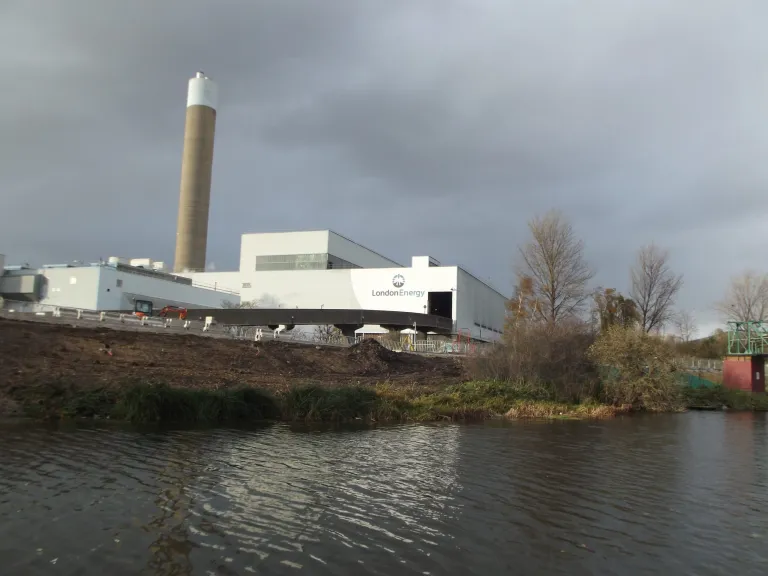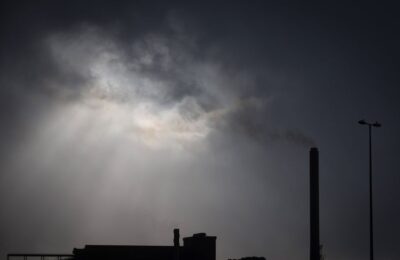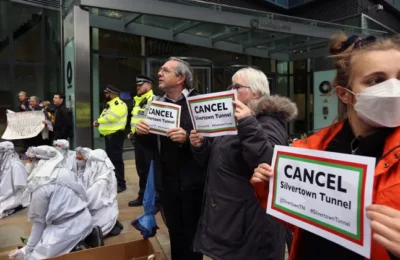From Barnet Post
Black bin waste in North London has dropped by 5% over 5 years leading to renewed calls to stop the building of the new Edmonton incinerator reports Josh Mellor, Local Democracy Reporter

North Londoners sent thousands of tonnes less rubbish to be burned this year, leading to renewed calls to review plans for a large new waste incinerator in Edmonton.
The North London Waste Authority (NLWA) – which is controlled by seven local authorities including Barnet – manages waste for more than two million North London residents. It received 557,000 tonnes of “black bin” waste last year – most of which was burned to generate power.
The authority has said that a slight decrease in waste intake since last year is likely due to “cost of living pressures”, such as higher energy bills, which mean North Londoners are throwing less away.
However, the long-term trend of falling household waste began before the cost-of-living crisis and has led to questions about the need for the authority’s new waste incineration facility, which currently has a bill of £1.5billion.
According to the waste authority’s annual report, the amount of black bin waste sent to the authority fell by 5% in the last four years.
Falling supplies of black bin waste from North London could be problematic for the new incinerator, which will become more expensive to run if it has less than 490,000 tonnes to burn per year.
Engineer Georgia Elliot-Smith, who is part of the Stop the Edmonton Incinerator campaign, said the latest figures call into question the authority’s predictions of needing a large new facility to deal with waste from a growing population.
Georgia suggested that the NLWA based its modelling of increased waste in North London on “flawed assumptions”.
She compared the authority’s 2015 modelling of residents throwing away 986,000 tonnes of black bin waste and recycling by 2020/21, a prediction that was used to support the need for a large new incinerator.
In fact, government statistics say only 676,000 tonnes were collected in that year.
Georgia told the Local Democracy Reporting Service: “An oversized incinerator can’t simply be dialled down – to keep burning efficiently, waste will have to be imported from far beyond North London to feed this massively oversized plant, condemning Edmonton to a future as the dumping ground of England.
“Our councils must act now to halt the scheme and conduct a fundamental review of its viability. It is not too late – the main incinerator construction has not yet begun.”
Noting the falling household waste figures at the authority’s board meeting last week (22nd June), chair Clyde Loakes said: “Obviously, reductions in residual waste is what we all want to see.”
Responding to anti-incinerator campaigners at the meeting, Cllr Loakes said their suggestion of sorting black bin waste for recycling could not deal with the “sheer amount” of waste the authority has to deal with.
Despite campaigners’ concerns about prioritising waste incineration over sorting and recycling, the NLWA argues that “increased capacity is needed”.
In a statement last year, it said: “Even in the most ambitious scenario, achieving 65% recycling and a 50% reduction in food waste, London would still have a shortfall in energy from waste capacity if the [North London Heat and Power Project] is not built as soon as London’s old plants retire, which is expected in the mid-2030s.
“This is because the population in north London is expected to rise between 10-45%, with growth mainly in flats and apartments which have a lower recycling rate than houses.
“We expect that people will recycle more and produce less waste in the future but overall, there will be more people producing waste, which means we need to plan for increasing volumes of waste.”
The NLWA is controlled by councillors from seven “constituent” North London councils: Barnet, Camden, Enfield, Hackney, Haringey, Islington and Waltham Forest.



